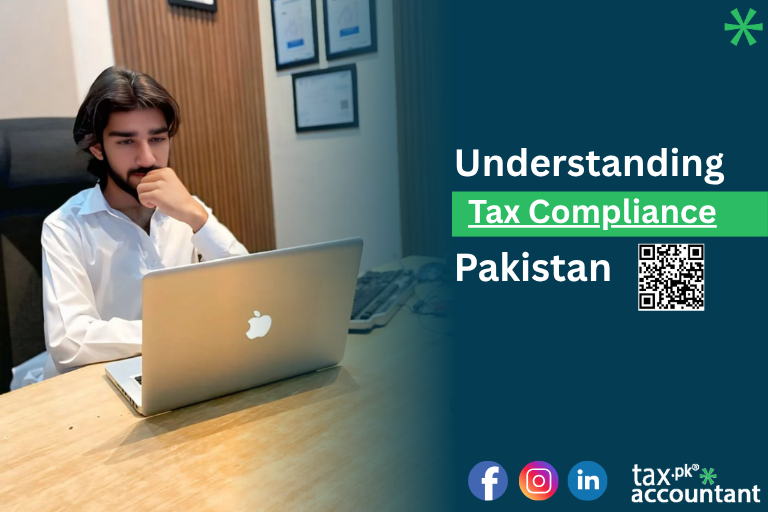Navigating the Labyrinth: Your Essential Guide to Tax Compliance in Pakistan (Rawalpindi Focus)
For businesses and individuals alike in Rawalpindi, Punjab, and across Pakistan, tax compliance is not merely a legal obligation; it’s the bedrock of a stable financial future and a contributing pillar to national development. While often perceived as complex and daunting, understanding and adhering to tax regulations is crucial for avoiding penalties, fostering business growth, and ensuring peace of mind. This guide will illuminate the key aspects of tax compliance in Pakistan, with a particular focus on the local context of Rawalpindi.
The Importance of Tax Compliance: Beyond Legal Obligations
Tax compliance signifies fulfilling your responsibilities as a taxpayer, which includes accurately calculating your taxable income, filing tax returns within the stipulated deadlines, and paying the correct amount of tax. In Pakistan, governed primarily by the Income Tax Ordinance, 2001, and administered by the Federal Board of Revenue (FBR), https://fbr.gov.pk/ adherence to these regulations carries significant weight:

Avoiding Penalties and Legal Repercussions: Non-compliance can lead to hefty penalties, interest charges, audits, and even legal prosecution. Staying compliant ensures you avoid these costly and disruptive consequences.
Building a Reputable Business: For businesses in Rawalpindi’s bustling commercial hubs like Raja Bazaar and Sadder, tax compliance is a mark of legitimacy and financial responsibility, enhancing their reputation with customers, suppliers, and financial institutions.
Contributing to National Development: Taxes collected by the FBR are vital for funding public services, infrastructure projects, and social welfare programs that benefit the entire nation, including the residents of Rawalpindi.
Facilitating Access to Finance: Compliant businesses are more likely to secure loans and investments from banks and other financial institutions, as tax records provide a transparent picture of their financial health.
Ensuring Smooth Business Operations: Consistent tax compliance minimizes the risk of disruptions due to audits or legal issues, allowing businesses to focus on their core operations and growth strategies.
Personal Financial Security: For individuals residing in areas like Bahria Town or DHA Islamabad (with tax implications in Rawalpindi), proper tax planning and compliance ensure financial security and avoid future complications with the tax authorities.
Key Aspects of Tax Compliance in Pakistan
Navigating the tax landscape requires understanding several key elements:
Tax Identification Number (NTN): Obtaining a National Tax Number (NTN) from the FBR is the first step for both individuals and businesses liable to pay tax. This unique identifier is essential for all tax-related transactions. The process is now largely online through the FBR’s website.
Taxable Income: Understanding what constitutes taxable income is crucial. For individuals, this includes salary, business income, income from property, capital gains, and other sources. For businesses in Rawalpindi’s industrial areas or service sectors, taxable income is the profit earned after deducting allowable expenses.
Tax Rates and Slabs: Pakistan follows a progressive income tax system, where higher income levels are subject to higher tax rates. These rates and income tax slabs are announced annually in the Finance Act. Businesses are subject to corporate tax rates, which also vary depending on their nature and size.
Filing Tax Returns: Filing income tax returns is a mandatory annual exercise. Individuals and businesses are required to file their returns electronically through the FBR’s online portal (IRIS) by the prescribed deadlines. For individuals, the standard tax year typically runs from July 1st to June 30th, with a filing deadline of September 30th (though extensions are sometimes granted). For companies, the tax year can vary, and filing deadlines depend on their accounting year-end.
Withholding Tax (WHT): Pakistan has a comprehensive withholding tax regime where tax is deducted at source on various transactions, such as salaries, payments to contractors, rent, and dividends. Businesses in Rawalpindi making such payments are responsible for deducting and depositing the applicable WHT with the FBR.
Sales Tax: Businesses involved in the supply of goods and services are also liable to pay sales tax, which is levied at the federal and provincial levels. In Punjab, the Punjab Revenue Authority (PRA) administers sales tax on services. Businesses in Rawalpindi need to be registered for sales tax if their turnover exceeds the prescribed threshold and file monthly sales tax returns .
Record Keeping: Maintaining accurate and detailed financial records is essential for tax compliance. Businesses and individuals should keep records of income, expenses, investments, and other relevant financial information for a specified period, as these may be required during tax audits.
Tax Planning: While compliance focuses on meeting current obligations, effective tax planning involves strategically organizing your financial affairs to minimize your tax liability within the legal framework. This can include taking advantage of tax exemptions, deductions, and credits available under the law.
Navigating Tax Compliance in Rawalpindi: Local Considerations
While the fundamental tax laws are federal, businesses and individuals in Rawalpindi should be aware of certain local considerations:
Punjab Revenue Authority (PRA): Businesses providing services in Rawalpindi are subject to Punjab Sales Tax on Services, administered by the PRA. Registration and filing of returns are done through the PRA’s online portal.
Local Business Regulations: Depending on the type of business, there might be local regulations or fees levied by the Rawalpindi Cantonment Board (RCB) or the Rawalpindi Development Authority (RDA) that indirectly relate to business operations and compliance.
Awareness and Education: Participating in tax awareness seminars and workshops organized locally can provide valuable insights into the latest tax updates and compliance procedures specific to the region.
Professional Assistance: Engaging qualified tax advisors or chartered accountants in Rawalpindi can significantly simplify the compliance process, ensure accuracy, and help identify potential tax-saving opportunities.
Tips for Ensuring Tax Compliance
Stay Informed: Keep abreast of the latest tax laws, rules, and regulations issued by the FBR and PRA. Regularly check their official websites for updates and notifications.
Maintain Accurate Records: Implement a robust record-keeping system to document all income and expenses.
Understand Your Tax Obligations: Determine your specific tax liabilities based on your income sources and business activities.
File Returns on Time: Ad here strictly to the prescribed deadlines for filing tax returns to avoid penalties. For this service. you can approach us https://taxaccountant.pk/
Pay Taxes Due Promptly: Ensure timely payment of all taxes owed to the FBR and PRA.
Utilize Online Resources: Leverage the online portals of the FBR (IRIS) and PRA for registration, filing, and payments.
Seek Professional Help: Don’t hesitate to consult with tax professionals for guidance and assistance, especially if you have complex tax matters.
Be Prepared for Audits: If you receive a notice for a tax audit, cooperate fully with the tax authorities and provide all necessary information.
Conclusion
Tax compliance in Rawalpindi, as in the rest of Pakistan, is an ongoing responsibility that requires diligence, accuracy, and a proactive approach. By understanding the key aspects of tax laws, adhering to filing deadlines, and seeking professional guidance when needed, individuals and businesses in Rawalpindi can navigate the tax landscape effectively, avoid penalties, contribute to national progress, and build a secure financial future. Remember, tax compliance is not just a legal necessity; it’s a cornerstone of responsible citizenship and sustainable economic growth.















